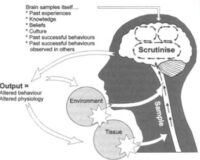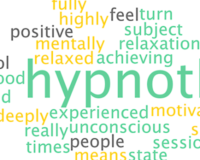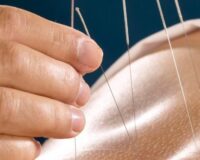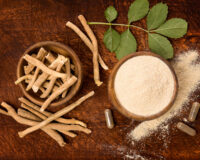
Naturopathy, Herbal Medicine and Women’s Health
Women’s health as a term bundles up hormonal and reproductive issues and problems that are specific to women. It’s not all doom and gloom though, for many women experience an uneventful reproductive life, and we cant forget that it is just this cycle that produces the miracle of life! However, problems can arise, especially at the changes in life stages, and with the rhythms of the monthly menstrual cycle.
These life stages that may need support are puberty (and the early stages of menstruation), the reproductive years, including conception, pregnancy and breast feeding, and perimenopause and menopause.
Usually the beginning of menstruation is largely seen as a natural event and little intervention in required. However, for some young women there may be problems such as heavy menstruation, pain, mood disturbances and acne. This can be distressing for some young women, but the gentle use of herbal medicines can assist the body in adjusting to its new hormonal state.
Puberty is a time of high growth and change in the body and increased requirements for vitamins and minerals. So it is particularly important to have a colourful, highly nutritious diet that is low in sugar and trans fats (from take away foods). Regular active lifestyle and exercise (for this age group vigorous is good) will assist in maintaining balance in body organ systems.
During a woman’s reproductive years there can be problems such as premenstrual syndrome (PMS), or difficulties with heavy or irregular periods and pain. There has been a long tradition of using herbal medicines for menstrual difficulties, with apt names such as Cramp bark, Squaw vine and Chastetree.
Specific conditions require more personalised treatments, but overall herbs are excellent for functional problems, being able to correct hormone imbalances and tonify and strengthen the organs. Chastetree is a wonderful herb that is very balancing and has proven success in clinical trials for premenstrual syndrome. There are also lovely herbs that treat heavy and painful periods, such as Crampbark.
PMS has also been helped by dietary changes that ensure more even blood sugar levels, and by moderate, regular exercise. The B group vitamins from leafy greens and wholegrains have also been shown to help.
Fertility issues, pregnancy and childbirth can also be assisted by natural therapies and herbs. Pregnancy, for example, is a big job for your body (and mind) and requires greater vitamin and mineral input, either from diet or by supplementation. Sometimes mum’s health needs are paid less attention in the excitement of a new baby, but there may be a need to replenish reserves, especially when a woman is breastfeeding long term.
Menopause is the cessation of the menstrual cycle and is preceded by hormonal changes during the “perimenopause”. This is a natural change and our body will adjust over time to its different hormonal status. However, the “adjustment time” can feel like puberty again, with mood swings, hot flushes and PMS like symptoms!
Here some of the herbs we use in PMS are helpful, but I have found it especially helpful to treat the nervous system and the body’s capacity to cope, and there are wonderful herbs to support this. St Johns Wort, Lemon balm and Withania are some of my favourites.
Phyto-oestrogens in the diet can help. These are plant substances that can interact with oestrogen receptors when there is not quite enough of your own oestrogen. Phyto-oestrogens are essentially balancing and in fact down regulate excessive or fluctuating amounts of your own oestrogen (such as in perimenopause). Good amounts can be found in traditional soy foods such as tofu or tempeh, soy milk and in ground linseeds.
After menopause certain nutrients become increasingly important as we need to look after our bones, cardiovascular system and skin. Vitamin D and E, weight bearing exercise, and mineral supplements that include calcium, magnesium, boron and zinc support post menopausal health.
At any time of change in our health, even in the natural transitions in our hormonal world, taking some more time to exercise and rest (both mentally and physically) can give our body a chance to adjust to the changes and restore harmony.
Its simple, but hard to do, in an ever demanding and complex world. So right now just take a breath, sit for a moment and be still, and put a little bit of balance back in your world!
Book Appointment



